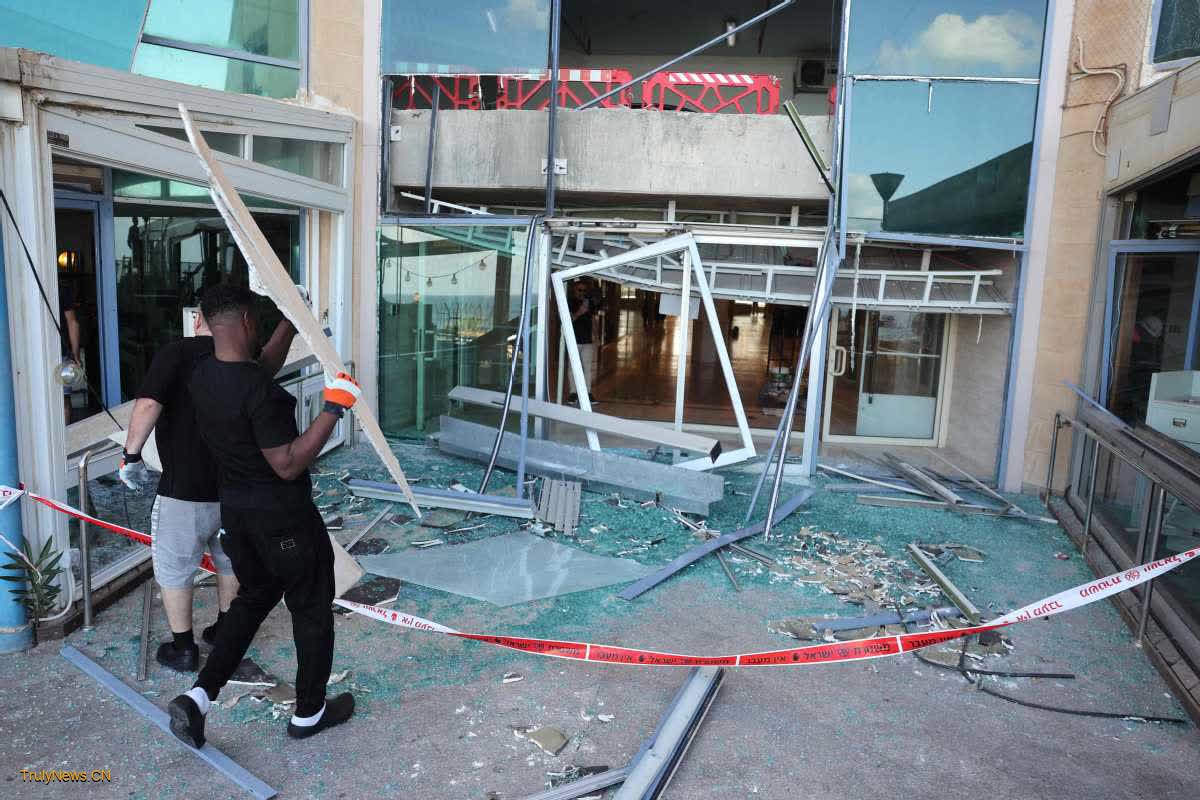
The United Nations has called for a de-escalation in the Middle East, after Iran fired a barrage of missiles at Israel on Tuesday evening in response to previous assassinations of Iranian leaders by Israel and the Israeli offensive in Palestine and Lebanon.
“I condemn the broadening of the Middle East conflict with escalation after escalation,” Antonio Guterres, Secretary-General of the United Nations, said in a statement after Iran launched missiles at Israel on Tuesday evening.
“We absolutely need a ceasefire,” Guterres said.
In response, Israel’s Foreign Minister Israel Katz said on Wednesday that he was barring Guterres from entering the country because he had not “unequivocally” condemned Iran’s missile attack.
The European Union also called for an immediate cease-fire across the Middle East. Josep Borrell, foreign policy chief of the EU, posted on X, “The dangerous cycle of attacks and retaliation risks … spiraling out of control. An immediate cease-fire across the region is needed.”
Iran’s Islamic Revolutionary Guard Corps, or IRGC, said the Iranian missile attacks were in retaliation for assassinations carried out by Israel and crimes committed in Palestine and Lebanon.
The IRGC warned Israel of more severe retaliation in case it responds to the attack.
At a cabinet meeting in a secure bunker near Jerusalem in the aftermath of the attack, Israel’s Prime Minister Benjamin Netanyahu warned that Teheran made a “big mistake tonight” and vowed that “it will pay for it”, according to The Times of Israel.
China on Wednesday expressed its deep concerns over the turmoil in the Middle East and its opposition to moves that fuel antagonism and escalate tensions, saying it rejected any violation of Lebanon’s sovereignty, security, and territorial integrity.
China believes the fighting in Gaza is the root cause of this round of turmoil in the Middle East, the spokesperson said, urging all parties to work toward achieving a comprehensive and enduring ceasefire in Gaza as soon as possible.
Mohammad Khajooei, an Iranian analyst on the Middle East issues, told China Daily that Iran’s massive missile strikes against Israel on Tuesday after a long restraint, the second such attack since April, have brought the two longtime foes to the brink of an all-out war.
Khajooei said that after its missile strike on Israel, Iran is in a state of “full vigilance” and is watching very carefully not to fall into an Israeli trap that could drag Teheran into an all-out regional war.
Heavy consequences of the strike are inevitable, he said. Israel has vowed to deliver a strong response to Iran’s missile strikes, which will further escalate the already tense situation in the Middle East and push the region closer to all-out war.
Any deterioration in the regional situation could have significant international repercussions, including a rapid spike in global oil prices and a detrimental impact on world’s economy, Khajooei said.
Muslim Imran, director of the Asia Middle East Center for Research and Dialogue in Malaysia, noted that it was clear Iran was thinking strategically following the Israeli aggression and the assassination of Hamas leader Ismail Haniyeh. Iran sought to create space for diplomacy in order to persuade Israel to halt its aggression in Gaza, reach an agreement, and initiate a cease-fire, he said.
However, Israel’s aggression persisted, and its leadership felt emboldened to launch attacks in Lebanon, Yemen, Syria, and other regions, Imran said. As a result, Israel ignored calls for diplomacy and a cease-fire, believing it was entitled to escalate its aggression due to the full backing from the United States, Imran said.
“This meant that Iran had to retaliate and carry out a “surgical operation” against Israeli military sites, and that’s what we saw last night,” Imran said. It was very clear that Iran was targeting military targets, not civilian infrastructure, he added.
Mohammad Reza Manafi
, a freelance journalist in Teheran, and
Zhao Jia
in Beijing contributed to the story.